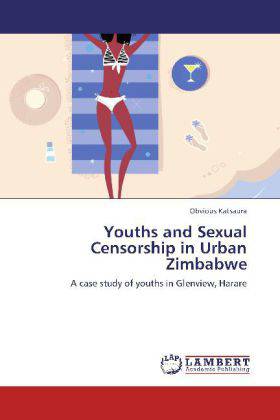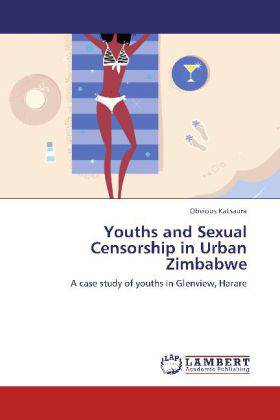
- Afhalen na 1 uur in een winkel met voorraad
- Gratis thuislevering in België vanaf € 30
- Ruim aanbod met 7 miljoen producten
- Afhalen na 1 uur in een winkel met voorraad
- Gratis thuislevering in België vanaf € 30
- Ruim aanbod met 7 miljoen producten
Zoeken
Youths and Sexual Censorship in Urban Zimbabwe
A case study of youths in Glenview, Harare
Obvious Katsaura
Paperback | Engels
€ 48,45
+ 96 punten
Omschrijving
Late teens in urban Zimbabwe, like elsewhere in the world, contend with institutional attempts to censor their sexual activities yet they paradoxically enjoy considerable sexual freedom, being powerful social actors as they are. There are efforts to instil sexual discipline and impart sexual education among the teens via institutions such as the family, media, religion and education. Mechanisms of sexually governing the teens are themselves muddled by contradictions, which leave them sometimes eluded, unaware of 'proper' sexual expectations, and at the mercy of their own discretions and judgments of how to sexually behave. The sexual permissiveness-repressiveness gamut is mediated by gender, in which the male and female teens are skewed in the permissiveness and repressiveness sides respectively. The linchpin of this project is on ensconcing the fact that despite the institutional "childrenisation" and "asexualisation" of unmarried late teens, the reality is that they can be or are really sexually active beings. This treatise explores late teens' navigation of the sexual permissiveness-repressiveness conundrum through a case study of late teens in Glenview Township of Harare.
Specificaties
Betrokkenen
- Auteur(s):
- Uitgeverij:
Inhoud
- Aantal bladzijden:
- 64
- Taal:
- Engels
Eigenschappen
- Productcode (EAN):
- 9783845404240
- Verschijningsdatum:
- 6/07/2011
- Uitvoering:
- Paperback
- Formaat:
- Trade paperback (VS)
- Afmetingen:
- 152 mm x 229 mm
- Gewicht:
- 104 g

Alleen bij Standaard Boekhandel
+ 96 punten op je klantenkaart van Standaard Boekhandel
Beoordelingen
We publiceren alleen reviews die voldoen aan de voorwaarden voor reviews. Bekijk onze voorwaarden voor reviews.











